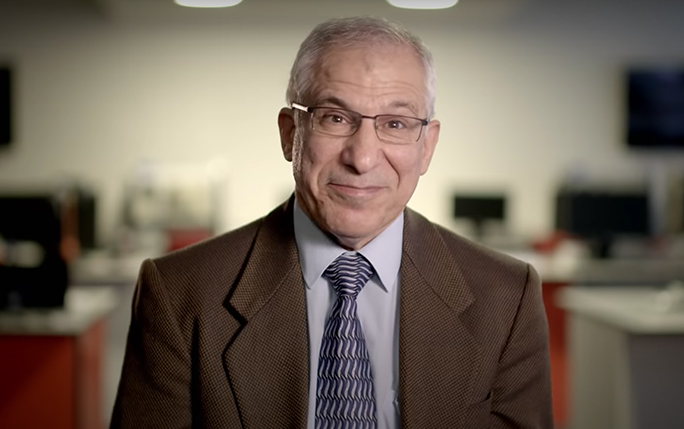Spotlight on the Project T.E.A.M. - Constantinos Astreos

The QUASAR Group Project T.E.A.M. deals with large international projects in accelerator science. It specializes in project management, interdisciplinary training, research dissemination and outreach to maximize the impact of projects.
In this Spotlight series we are bringing its activities and the role of our team members closer to you than ever before and hope that you get a better idea about the fascinating work of our Project T.E.A.M.
For this interview we have spoken with Constantinos Astreos who joined the QUASAR Group as Business Development Manager in 2021. He is responsible for identifying new research funding, developing links with external organisations to form collaborative projects and managing opportunities for commercial exploitation of research generated IP.
Why did you choose to work in technology transfer and Knowledge Exchange?
"My industry experience in advanced technology product and service development inspired me to work in a team environment where developing and launching something new such as a novel or improved product or service, proved to be exciting and motivational. A business development role in the project T.E.A.M. gives me the opportunity to work with very talented and innovative academics based around the world who have the vision and research expertise to develop new technologies, not seen or heard anywhere before and apply these to solve specific problems which benefit businesses and society as a whole."
What is the role of a Business Development manager in a University Physics department?
"Business development is a term that often can be quite unclear and change in meaning, depending on who you are talking to. Almost everyone is familiar with the basic functions of different teams across an organisation – sales, engineering, finance, operations etc. However, when it comes to “Business Development” there is a level of ambiguity surrounding the true meaning of the term and what responsibilities individuals with the title have.
Business Development managers in the university mainly work within departments, faculties or technology transfer offices. My job often concentrates on the management and exploitation of intellectual property as a result of the research that is undertaken by academic staff. I provide the link between the academics and industry and help identify and exploit some of the research outputs that could be applied to solve real world problems; whether that is for companies or for societal and environmental needs.
In my role it is also important to recognise that working with external organisations is a two-way process; in my area of work we call it ‘knowledge exchange’. On the one hand I disseminate our academic researchers’ own knowledge to these organisations which can provide them with new ideas, knowhow which can influence their current thinking and the way they do things. On the other hand, I obtain new knowledge from them; industry has a good knowledge of users’ needs and also has an excellent knowledge of the economy, the market i.e. what sells, what doesn’t sell; what is expensive, where savings can be made, where technology improvements are needed and what will be needed in the future in terms of new products, technologies and services.
In my role as a Business Development manager, I work with researchers to help them develop relationships with businesses and other external organisations e.g. the NHS. I also match opportunities for collaboration with the appropriate type of funding. Unlike working within a commercial business where the investment for R&D will mainly come from internal resources, in universities funding is competitive and comes from multiple external sources, such as government research councils, EU programmes or directly from businesses."
What in your view are the key challenges when forming university-industry collaborations?
"Business Development managers in universities can face many challenges in their role to make academic research have as large an impact as possible. From my own experience, in order to make this happen, I need to find the most promising research from academics to engage industry with. Added to that, I also need to identify not “only” relevant companies, but the right people within those companies to make contact with. This is not always an easy task when I may have never met or talked to the person I would like to contact. This is where face-to-face networking becomes important and where personal recommendations by other contacts are vital."
How can companies work with the QUASAR Group?
"There are various ways companies can work with us. They can propose and sponsor individual PhD projects or offer placements to PhD students as part of their study. Companies can also work with us to access the right research expertise and collaborate on research projects. As a Business Development manager, I act as the broker between my group and the Department of Physics more widely, and companies. I also assist in identifying the most appropriate funding mechanism to suit the type and needs of joint collaborative projects. We have been working with companies in small proof of concept projects and also as part of consortia in very large collaborative research projects. We have also organised special workshops that have brought together our experts with companies from the UK and across the EU in areas such as detectors, cryogenics or healthcare instrumentation. These workshops have provided an excellent basis for follow-on discussions and joint projects."